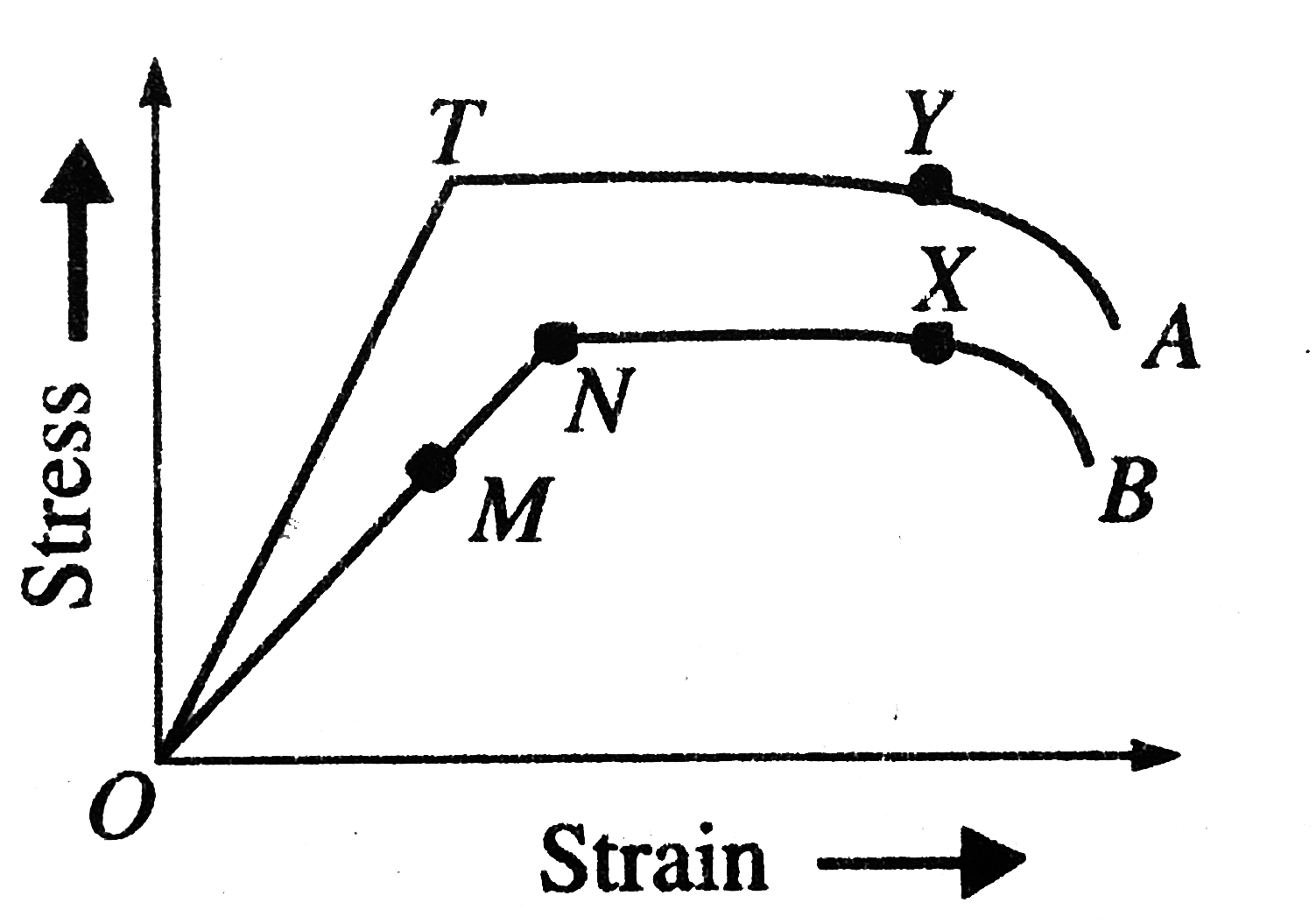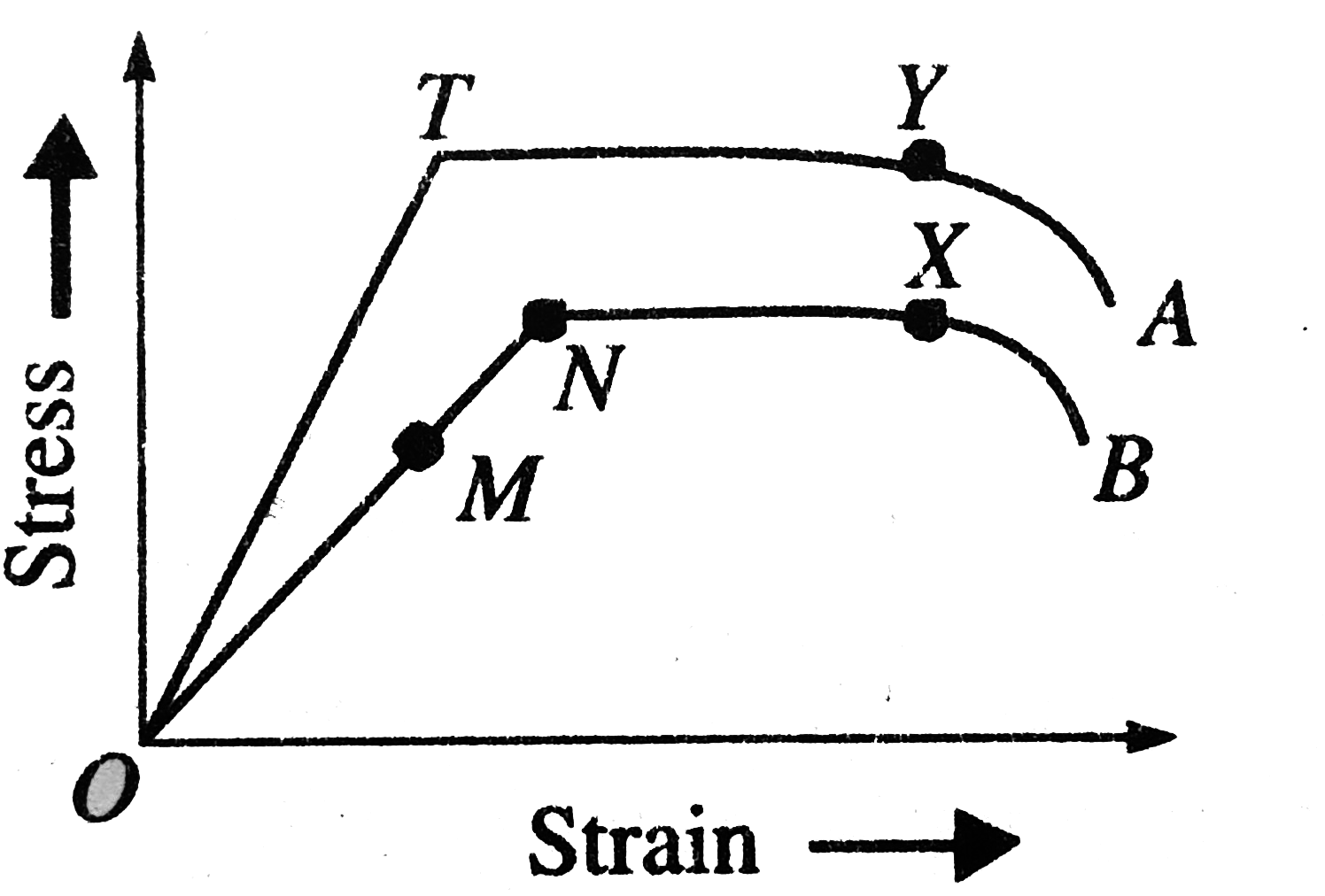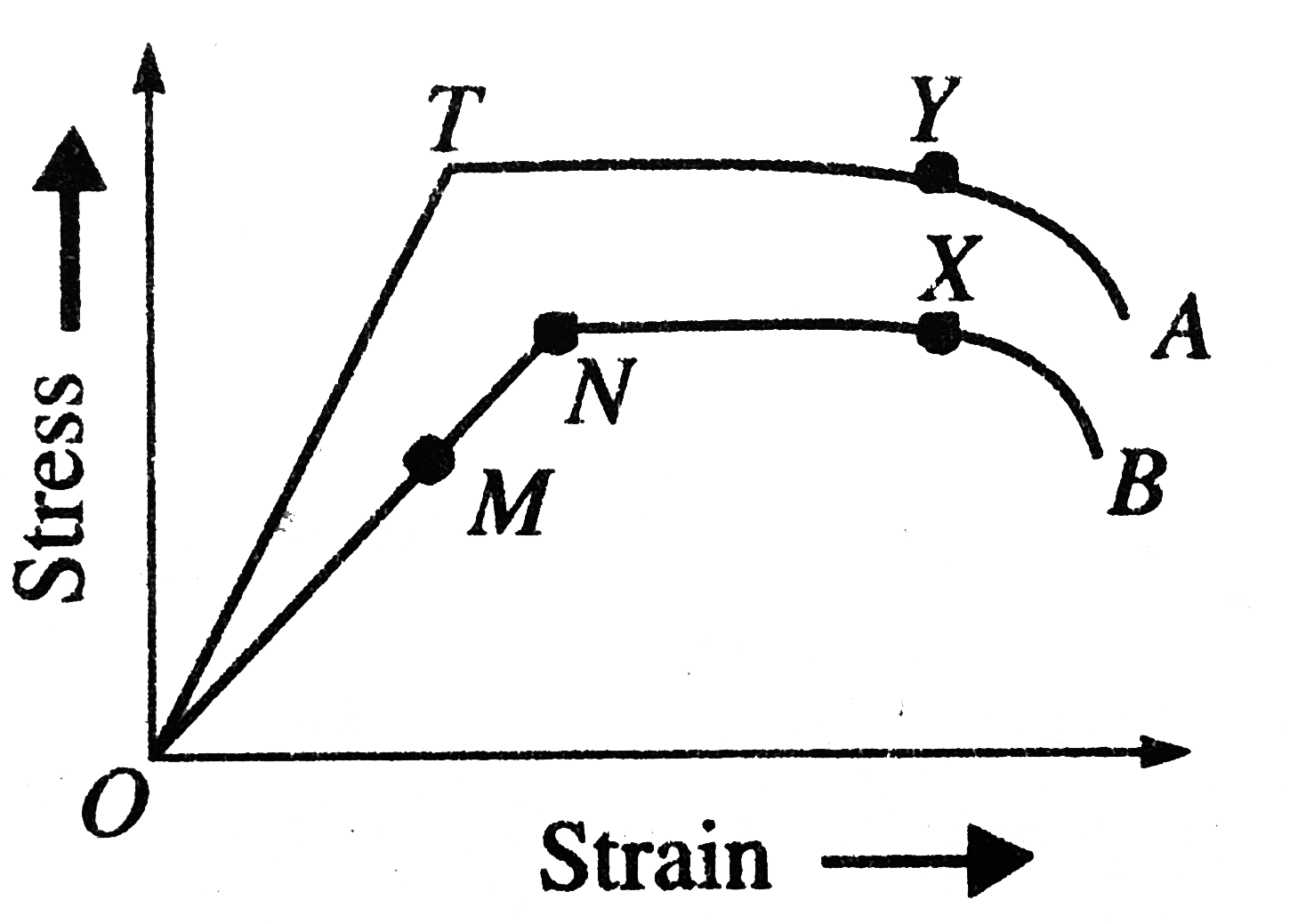Materials get deformed when force is applied. Some of them regain their status when the applied force is removed. They are termed as elastic. Those of which not regaining are called plastic. There may be delay in the regaining in some materials. They are said to have got elastic aftereffect, since they have gone beyond the elastic limit. Repeated application and removal of force leads to fatigueness in the material. Fatigued materials may break at any point time and so are avoided.
The stress strain graph for two materials A and B is shown in the following figure:

The time in which the two materials regain their original status is tA and tB related as tB=2tB. Then the material under elastic aftereffect (relatively) is
A
B
B
A
C
both A and B
D
neighter A nor B
Video Solution
Text Solution
The correct Answer is:A
Time to regain original status in B is greater than the time to regain original status in A. So relatively B is more fatigued than A. So a. is correct and the rest are incorrect. However, this answer can only be relative and never absolute.
|
Topper's Solved these Questions
- PROPERTIES OF SOLIDS AND FLUIDSBOOK - CENGAGE PHYSICSCHAPTER - PROPERTIES OF SOLIDS AND FLUIDSEXERCISE - Integer
6 Videos
- PROPERTIES OF SOLIDS AND FLUIDSBOOK - CENGAGE PHYSICSCHAPTER - PROPERTIES OF SOLIDS AND FLUIDSEXERCISE - Fill In The Blanks
1 Videos
- PROPERTIES OF SOLIDS AND FLUIDSBOOK - CENGAGE PHYSICSCHAPTER - PROPERTIES OF SOLIDS AND FLUIDSEXERCISE - Assertion- Reasoning
13 Videos
- NEWTON'S LAWS OF MOTION 2BOOK - CENGAGE PHYSICSCHAPTER - NEWTON'S LAWS OF MOTION 2EXERCISE - Integer type
1 Videos
- RIGID BODY DYNAMICS 1BOOK - CENGAGE PHYSICSCHAPTER - RIGID BODY DYNAMICS 1EXERCISE - Integer
11 Videos
Similar Questions
Knowledge Check
Materials get deformed when force is applied. Some of them regain their status when the applied force is removed. They are termed as elastic. Those of which not regaining are called plastic. There may be delay in the regaining in some materials. They are said to have got elastic aftereffect, since they have gone beyond the elastic limit. Repeated application and removal of force leads to fatigueness in the material. Fatigued materials may break at any point time and so are avoided.
The stress strain graph for two materials A and B is shown in the following figure:

If the intensity of A and B is EA and EB, respectivelyAEA=EBBEA>EBCEA<EBDEA<<EBMaterials get deformed when force is applied. Some of them regain their status when the applied force is removed. They are termed as elastic. Those of which not regaining are called plastic. There may be delay in the regaining in some materials. They are said to have got elastic aftereffect, since they have gone beyond the elastic limit. Repeated application and removal of force leads to fatigueness in the material. Fatigued materials may break at any point time and so are avoided.
The stress strain graph for two materials A and B is shown in the following figure:

The strength of the material A and B is SA and SB, respectively, while the longevity of plastic behaviour is LA and LB. ThenASA>SB,LA<LBBSA=SB,LA=LBCSA>SB,LA>LBDSA<SB,LA<LBOn applying external force beyond the elastic limit,
Ano effect is produced on the materialBpermanent deformation of the object is causedCdeformation is zeroDmatter is liquified
The metal which do not break beyond elastic limit is
View SolutionOf the following, the most elastic material is
View SolutionWhen a force is applied on a body, Newton's second law is applicable to
View SolutionWhich of the following is not the application of elastic behaviour of material
View SolutionSupply is said to be unitary elastic, when :
View Solution
